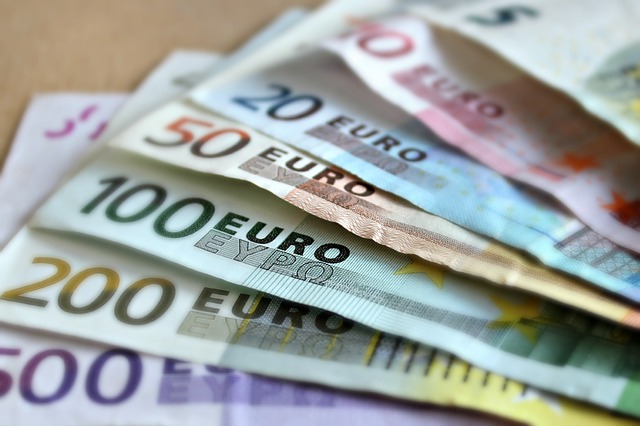Monex: Euro levert in door mislukken Europees overleg
Monex: Euro levert in door mislukken Europees overleg

Hieronder volgt een commentaar in het Engels van Ranko Berich, Head of Research bij Monex Europe op de Amerikaanse dollar, euro en het Britse pond.
USD
After trading lower all of this week, the dollar is back. Global risk sentiment continues to ebb and flow, with today looking to be a risk-off vibe in FX markets after the breakdown of communications between Eurozone leaders overnight. In US news, Treasury Secretary Steven Mnuchin asked Congress to swiftly commit an additional $250bn to the new $349bn small-business loan program that has been overwhelmed with surging demand. Republican leader Mitch McConnell said the Senate may act as soon as tomorrow to approve the supplementary funds while President Trump said $70bn in guaranteed loans have already been processed. In the White House, authorities are working on plans to reopen the economy one step at a time according to people familiar. The plan would see small cities, not highly affected by the outbreak, reopen while hot spots like New York would remain shut. In politics, today’s Wisconsin primary is a key contest, one in which former Vice President Joe Biden hopes to deal a knockout blow to rival Senator Bernie Sanders. Democrats sought to delay the vote and extend absentee balloting, to both protect voters from Covid-19 and because some 12,000 ballots had yet to be received by voters. But the Republican-controlled state legislature, along with Republican-appointed majorities of the Wisconsin Supreme Court and U.S. Supreme Court, decided in-person voting couldn’t be postponed and that there would be no extensions for submitting absentee ballots.
EUR
The euro is trading lower this morning, after a marathon 16-hour eurogroup call failed to result in a joint statement or a breakthrough. While the press managed to release some information on the discussions throughout the meeting, putting pressure on the currency by foreshadowing the final outcome, the scheduled end at 07:00 BST this morning pushed the euro down as much as 0.5% against the dollar. In the emergency teleconference, strong disagreements remained between Europe’s southern and northern states, leaving the bloc without an agreement on an adequate virus response. The main dispute occurred between the Netherlands and Italy. Italy’s finance minister Roberto Gualtierie requested to have debt mutualisation explicitly mentioned in the final report sent to EU leaders, and demanded that loans from the European Stability Mechanism loans come with no conditions attached. Finance minister Wopke Hoekstra from the Netherlands disagreed on both points, showing no changes from the previous meeting. Germany mentioned it supports measures to smoothen economic recovery but was against the idea of member states sharing debt using coronabonds. BTP yields jumped to a three-week high after the bloc failed to reach a deal, while demand for Bunds, a haven asset, rose in contrast. A new conference call is now scheduled for Thursday, but the lack of progress in the previous two meetings has weighed down on market participants’ confidence.
GBP
Sterling has slightly pared back yesterday’s modest rally against the US dollar this morning, while Boris Johnson remains in intensive care, but has not been put on a ventilator. There is still a lack of clarity about the extent to which Dominic Raab has assumed the full responsibilities of the Prime Minister’s office, with the main detail being that Raab will deputise “as necessary”. Speaking at the daily No. 10 press conference yesterday, Raab declined to say if he would be able to authorize a major change in strategy in the event of disagreement within the cabinet. The British Chambers of Commerce released the results of a survey from the end of last week, which showed a relatively slow uptake among UK businesses of the new Coronavirus Business Interruption Loan Scheme. Just 1% of respondents had been able to access the scheme, while 8% said they had been unable to do so, due to the complexity of the process or a lack of response from their banks. Uptake may accelerate now after the Government relaxed eligibility criteria last week. With the lockdown continuing and most companies facing a “cliff edge” scenario according to the BCC’s director-general, further measures from either the Treasury or Bank of England may prove necessary.





